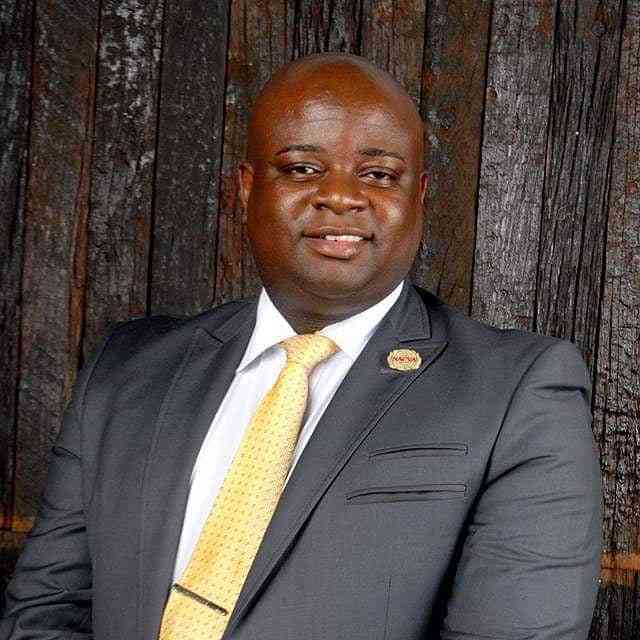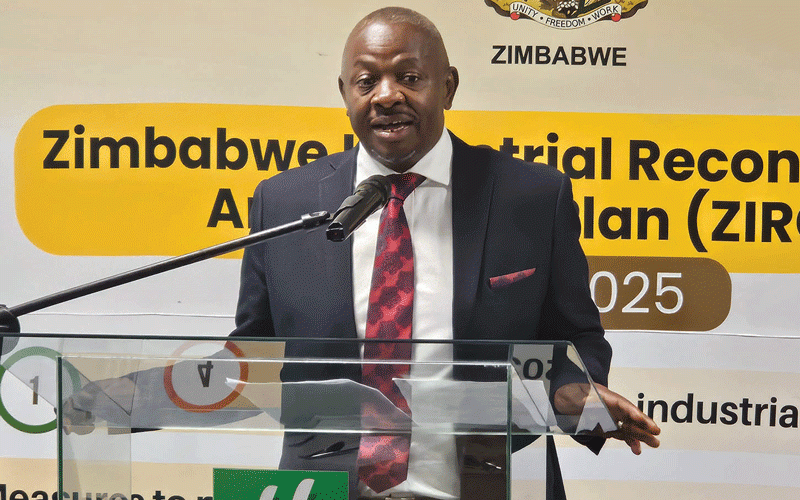
INTERNAL Control Institute of Zimbabwe (ICIZ) is one organisation seeking change to improve the corporate governance structures in both the public and private sectors through organisations implementing internal controls. Our deputy group business editor, Tatira Zwinoira (ZW), sat down with ICIZ chief executive officer Proctor Nyemba (PN) at the institute’s recent three-day Loss Control Summit in Nyanga, to discuss the subject of internal control.
TZ: What is loss control?
PN: Loss control is about end loss happening in any family or any business and anything which can be controlled to avoid end loss. We can talk about time management. It is part of loss control. We can talk about theft, and we can even talk about wrong investment in any organisation. As you can see right now our country is suffering a lot because of poor loss control management.
We have failed to manage some things in our country. We have noticed that loss control is a department which has been established in organisations to manage loss control physically, electronically or in any other way in an organisation. We have come here to sit down with loss control practitioners to have teamwork on how to curb loss control in the country in terms of time management, fraud, cyber, and artificial intelligence. We are discussing such things as how criminals are sitting down to defraud the country or our companies? So, we are trying to encourage loss control to be represented at the board level. The shareholders need to talk about loss control at the board level.
We know that there is audit committee in the board. But we need also loss control to be top at the board level. Look, we have issues to do with currency. It is part of loss control. These are the things we have been sharing with a lot of experts here. And, also, in terms of loss control we have tried to engage the Zimbabwe Anti-Corruption Commission because corruption and abuse of office are part of the losses which the companies are incurring.
TZ: Can you explain the types of loss control systems which a company can put in place?
PN: If you look at parastatals, we do have the SAP software (Systems Applications Products). It is a widely used enterprise resource planning software. These are part of loss control. You are trying to control the losses in the organisation. At the end of the day, the world is changing because of technology.
This year, people have been talking about artificial intelligence. It means that is where the loss is going to be happening again. People will lie that they are doing artificial intelligence whilst they are stealing from the organisation. As internal control practitioners and auditors, we need to be alert on managing artificial intelligence. How can we manage this? How can we see red flags of artificial intelligence?
- Zacc handles 39 graft cases
- Adopt loss control mechanisms, businesses urged
- Loss control institute alarmed by rampant procurement crime
- Loss control expert pushes for independent institutions
Keep Reading
TZ: As the CEO of the Internal Control Institute of Zimbabwe, what is your goal?
PN: The first thing to us as ICIZ is to ask the government of Zimbabwe Controller General, Auditor General, and Accountant General to be independent. So, the Controller General has to work in terms of the loss control practitioners in terms of controlling the economy.
For the Auditor General, they have to work in terms of auditing. Once we start with the government, it goes down to the parastatals. Right now we lack internal controls in the government. Who owns internal controls in the government? The government of Zimbabwe needs to start to put the internal control unity headed by the Controller General.
Loss control and internal control professionals should be accredited as the practitioners and given licenses so that tomorrow if they happen to lose, they are fired. At the end of the day, you are keeping criminals in the pocket. Let’s have a licence for a person to practice in terms of controls like what lawyers do. You’ll find that if a person is a lawyer and he is blacklisted, he cannot practice. The same must apply with controls. If you are not practicing, we want your license to be cancelled by government or by the regulator so that you won’t talk about controls anymore.
TZ: So, in which areas would you say a lot of loss occurs?
PN: Procurement fraud is one of the biggest frauds in our country. It is one of the biggest white collar crime cases in our country. And, as you can see right now, our government has got a good vision of ‘Vision 2030’ and we are riding on contracts. But, some of our other contracts are not being done. Some pricing of the contracts are not being done in a procedural way. And sometimes the quality of the contract, a person is quoting ZiG10 billion for a project to be done. But if you look at the real pricing of the project, it is ZiG1 million. The government is losing a lot of money. So, contract management and procurement, supply chain, are some of the biggest crimes in the country. But we are happy that PRAZ (Procurement Regulatory Authority of Zimbabwe) has come to take the ‘jaguar’, but it’s not easy for PRAZ to do it on its own. It has also to work with the loss control practitioners to make sure that we win the game.
TZ: You think there is an appetite by the authorities to actually work with the loss control practitioners?
PN: They are, but the issue is about, you know, the tone at the top. They need to lead by example. We are challenging the tone at the top in the country of Zimbabwe to engage the loss control practitioners in whatever they will be doing so that at the end of the day we share or we can give advice on how to manage the losses we are incurring in your country. We are happy with the way it is being done with the currency. You remember the Zimbabwe Vice President Constantino Chiwenga came on the TV and said what he said.
That was a measure to talk to the nation because people in general cooperate in terms of governance a couple of times but when the Vice President says so, people comply, and this benefits the nation. So, my controls are equal to the stock exchange. These are the controls we need for the economy to run. Not things to be run by two people as if these are the owners of the country. The government must put internal controls like what they have done to the currency.
TZ: Can you tell me how has it been, trying to get actual policies put in place?
PN: I don't think we have policies in place to do with controls. And I think you guys as journalists, let's work together to come up with a document and let's share with our leaders. I think they can accept. That is why we called the Zimbabwe Anti-Corruption Commission to come here and also to share with them that your first way to fight corruption is with our loss control practitioners and we need to have the Loss Control Act.
TZ: By what percentage do you think companies can save money by enforcing strong loss control frameworks in their businesses?
PN: Eighty percent!
TZ: You said that very quickly.
PN: Yeah, 80% because these are controls, systems. Imagine, because of technology you don’t need a camera to check who has gone into the office as a fingerprint can now check if you have gone into the office. So, a lot (of malfeasance) will be reduced. The reason why it is not happening is that CEOs are criminals, some of them not all of them.
They know once they implement such controls, they are going to be arrested themselves. Which is why you find today when you commit white collar crime no one goes to jail. A person who goes to jail is a house maid over a box of match sticks but a person who has committed a white-collar crime will not be arrested because there are ‘technicalities.’










